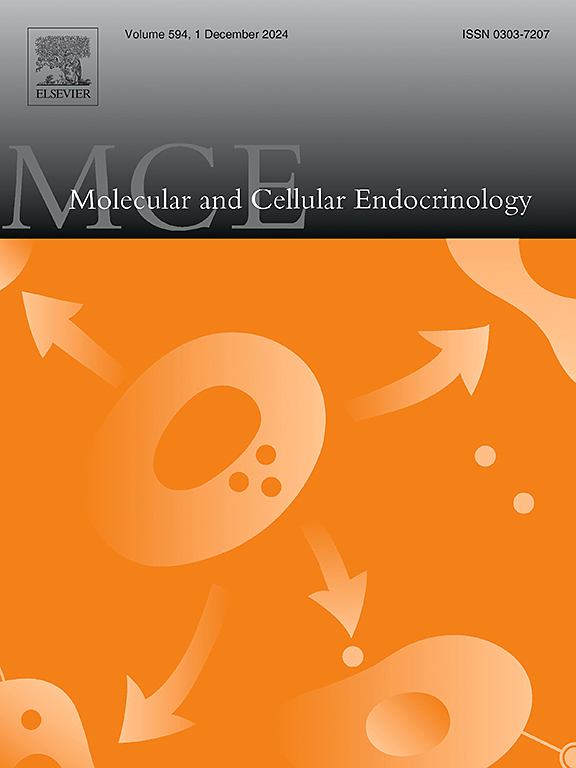葡萄糖摄入的时间驱动不同的肝脏结果:不同的葡萄糖和脂质代谢
IF 3.6
3区 医学
Q2 CELL BIOLOGY
引用次数: 0
摘要
过多的糖摄入与胰岛素抵抗和2型糖尿病(T2D)密切相关,但营养时间的代谢后果-特别是禁食和喂养期间的葡萄糖消耗-仍然知之甚少。方法采用每隔一天禁食(EODF)方案,将sc57bl /6小鼠随机分为3组:对照组(仅自来水),食物葡萄糖组(FG);进食时葡萄糖水)和饥饿时葡萄糖(SG;空腹时的葡萄糖水)。22周后,分析代谢表型、肝脂质谱、胰岛素信号标记物和肝脏转录组。结果空腹葡萄糖摄入(SG)诱导肝脏胰岛素抵抗,Akt和fox01磷酸化降低。相比之下,摄食期间的葡萄糖摄入(FG)促进肝脏甘油三酯积累,上调脂质基因(如Acaca, Fasn),并增加SREBP-1c和PPARγ的表达。转录组学和途径富集分析显示,FG组和SG组之间胰岛素信号和脂质代谢的激活模式不同。结论营养摄入时间对肝脏代谢反应有重要影响:进食时摄入葡萄糖促进脂肪生成,而禁食时摄入葡萄糖会引发胰岛素抵抗。这些发现强调了时间营养策略在预防T2D中的重要性,并表明个性化的饮食时间可能提供治疗益处。本文章由计算机程序翻译,如有差异,请以英文原文为准。
Timing of glucose intake drives distinct hepatic outcomes: Divergent glucose and lipid metabolism
Objective
Excessive sugar intake is strongly associated with insulin resistance and type 2 diabetes (T2D), yet the metabolic consequences of nutrient timing—specifically glucose consumption during fasting versus feeding—remain poorly understood.
Methods
C57BL/6 mice were subjected to an every-other-day fasting (EODF) regimen and randomly divided into three groups: control (tap water only), food-glucose (FG; glucose water during feeding), and starvation-glucose (SG; glucose water during fasting). After 22 weeks, metabolic phenotypes, hepatic lipid profiles, insulin signaling markers, and hepatic transcriptomes were analyzed.
Results
Glucose intake during fasting (SG) induced marked hepatic insulin resistance, as evidenced by reduced phosphorylation of Akt and FoxO1. In contrast, glucose intake during feeding (FG) promoted hepatic triglyceride accumulation, upregulated lipogenic genes (e.g., Acaca, Fasn), and increased expression of SREBP-1c and PPARγ. Transcriptomic and pathway enrichment analyses revealed distinct activation patterns of insulin signaling and lipid metabolism between FG and SG groups.
Conclusions
Nutrient timing critically influences hepatic metabolic responses: glucose intake during feeding promotes lipogenesis, whereas intake during fasting triggers insulin resistance. These findings underscore the importance of chrononutritional strategies in preventing T2D and suggest that personalized dietary timing may offer therapeutic benefits.
求助全文
通过发布文献求助,成功后即可免费获取论文全文。
去求助
来源期刊

Molecular and Cellular Endocrinology
医学-内分泌学与代谢
CiteScore
9.00
自引率
2.40%
发文量
174
审稿时长
42 days
期刊介绍:
Molecular and Cellular Endocrinology was established in 1974 to meet the demand for integrated publication on all aspects related to the genetic and biochemical effects, synthesis and secretions of extracellular signals (hormones, neurotransmitters, etc.) and to the understanding of cellular regulatory mechanisms involved in hormonal control.
 求助内容:
求助内容: 应助结果提醒方式:
应助结果提醒方式:


